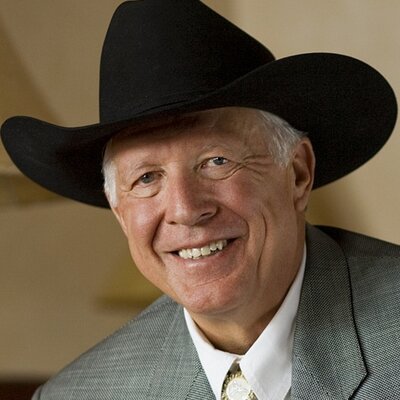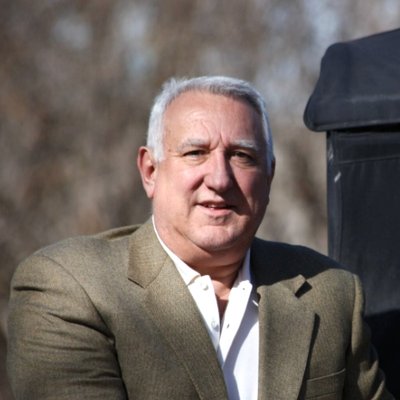Gubernatorial Candidate Survey
Wyoming’s next governor will play a key role in the future of our state’s public lands, wildlife, and environmental quality. This 10-question survey shows where candidates stand on important conservation topics facing our state. Thank you for taking the time to be an informed citizen!
(Please note: all primary candidates for governor were sent surveys. Shown below are those who replied and their complete responses. The Wyoming Outdoor Council does not endorse or oppose any candidate for public office. Click the Candidate Name to see each candidate’s response.)








1. What is your position on the transfer of federal public lands and/or their management to the State of Wyoming?

Article 4, section 3, clause 2 of the US Constitution address this question from my perspective. I am not in favor of the transfer, at this point keep public lands in public hands. It would be costly. There are more than one study as to the economic benefits and there is nothing that is compelling to initiate this at this time.

It is in our interest as Wyoming citizens to keep federal lands under federal control. The risk of forest fires is very real, and it’s better to have the federal government pick up those maintenance expenses than Wyoming taxpayers having to foot the bill, but Wyoming also needs to negotiate better access to these lands to bolster our key economic drivers.
Fortunately, God Blessed us with such bountiful land that we can have it all. Certain areas should be restricted from mineral extraction and preserved if they are pristine hunting areas or scenic areas, but we can also open up new areas for mineral developments that will help boost our economy as we continue to diversify our tax base.
Having the federal government control and own the lands, but allowing for greater access to use them is similar to being able to borrow our brother-in-law’s cabin for a two-week vacation, but if it needs a new roof, that’s his problem.
I like what Governor Butch Otter of Idaho did when he negotiated the designation of Bogus Basin as a landscape treatment area in which private companies could bid on contracts to remove the beetle kill in the area, and the state of Idaho then splits with the federal government the proceeds from that management. No change in ownership of the land takes place.
I also strongly support The Federal Land Freedom Act that would allow states to prove they have the capabilities to oversee oil and gas permitting, leasing and production on available federal land brought to the floor of Congress last year by Rep. Liz Cheney.
The contacts I have built by meeting with a dozen governors quarterly and with cabinet officers as a result of my support of conservative Republican causes could be harnessed to influence these decisions.

Growing up in Wyoming, I was raised to love public lands and cherish my access and time on public lands. Having said that, I do not support the transfer of federal lands to the state of Wyoming. As Governor, I will work night and day to make sure that Wyoming has the most control possible of the public lands within our state to promote the full use and enjoyment of those lands for all Wyoming citizens. I will work cooperatively with the Trump Administration to restore as much decision-making ability to the State of Wyoming as is possible using a strict multi-use model. This means more of the decisions on how Wyoming’s lands are managed are made right here – in Wyoming, by the people of Wyoming.

As a lifelong sportsman, maintaining and improving public access and multiple-use while protecting private property rights is essential. My main priority is keeping public lands in public hands, so I oppose large scale federal land transfers. However, I am in favor of efforts to allow for more state control over federal land management and ensuring local stakeholders have a voice in the process. Wyoming cannot afford to lose out on the rapidly expanding outdoor recreation industry by losing important public access to our lands, waters and scenic vistas.

Public lands should remain in public hands. Period. I unequivocally oppose transferring federal lands to the state. These attempts are a prelude to privatizing our public lands. Even if this were not the case, Wyoming almost certainly could not afford to manage the federal lands. It costs hundreds of millions of dollars per year—money that Wyoming simply doesn’t have available in its current budget. To say nothing of the risk that a future legislature might try to solve their budget shortfalls by selling off public lands. The next governor will need to be a strong advocate to ensure that federal land management decisions protect all of Wyoming’s interests. Our public lands offer world class places to hunt, fish, hike, wildlife and bird watch, rock climb, mountain bike and more. We attract visitors from all over the world because of the breadth and diversity of our outdoor recreation opportunities. These lands are our heritage and I will always fight to protect our greatest treasures.
2. What are your thoughts about utility-scale renewable energy development (e.g. wind and solar) in Wyoming? What role, if any, should the State of Wyoming play in the regulation of these activities?

Renewable energy is out of the barn. It should be coordinated with the state as it effects wildlife and recreational uses. It can be implemented using guidelines that are considerate to our wildlife and environment.

The state cannot afford to hand out subsidies of any kind to any industry. That being said, with some of the best wind and solar potential in the country we cannot turn a blind eye to this industry.
We must find a fair and equitable way to tax wind and solar companies then get government out the way and allow the free market to determine their fate.

I, like most folks, am supportive of all energy sources including renewables, such as wind and solar. Wyoming should think about whether our tax policy will attract industry and investment to Wyoming or drive it to other States. This is true of any industry be it coal, oil and gas or renewables. We want to make sure that investment and the related jobs and tax revenue is coming to Wyoming for all industry, renewables included.

Be it oil, gas, coal, uranium or wind, when it comes to natural resources, Wyoming has it all. As a lifelong conservative, I believe strongly that the market should pick winners and losers when it comes to energy sources, not government.
I see renewables like wind as additive to our energy economy, not a detractor. Several new projects proposed for Albany, Carbon, Converse and Uinta counties have the potential to bring immense investment and job opportunities to many communities in southern Wyoming, but development should proceed thoughtfully. As Treasurer, I’ve worked with the Industrial Siting Council and the Public Service Commission to assure thoughtful, efficient, development of resources with an eye towards the impact on communities and surrounding areas and as Governor I will continue this work.
However, to really unleash this potential, Wyoming must address transmission capacity, and the lengthy regulatory process that accompanies infrastructure development. Regulation should be based on common sense, be respectful and efficient. This is part of lifting the regulatory burden that Wyoming faces. Wyoming has seen companies working on permitting for more than a decade. This is unacceptable and counterproductive to growing our economy and promoting our natural resources.

I think wind and solar represent exciting opportunities for our state. Wyoming has long been the nation’s energy capitol, and there’s no reason that shouldn’t continue to be true as the rise of renewables continues.
The state should be involved in the regulation of any new energy development to guarantee impacts on air and water quality, wildlife and habitat, and local communities are properly mitigated. It is also time to examine Wyoming’s net metering provisions to allow for more home and business use of renewables.
Additionally, our current tax structure is not built for our next generation economy and should be revised appropriately to support growth and investment in these and other sectors.
3. Wyoming has some of longest intact big game wildlife migrations in the lower 48 states. Do you have recommendations regarding management of these corridors? Are there particular actions that you would put into place as governor?

Wildlife management and use should not be negatively impacted. Conflicts should be avoided. These areas have been identified and caution should in favor of wildlife.

I view our public lands and wildlife corridors as a piece of our public infrastructure.
The public lands that support Wyoming diverse wildlife are what make our state such a special to live, work and raise a family. Maintaining key wildlife corridors are critical to preserving the regional ecosystems we all value as not only a quality of life driver but also as a driver of sales tax revenue.
While we must work to shrink the size of the budget and reduce wasteful spending, funding programs like the Game and Fish’s habitat priority program area the right use for taxpayer dollars.

I applaud the efforts of the State to take a proactive role in managing big game migratory corridors to ensure that our wildlife resources are healthy and thriving. I support the current strategies adopted for improving habitat conditions along migratory corridors, including treatments to fight the spread of invasive weeds and grasses, fence modifications to allow easier passage for big game, protecting water sources in arid environments, and the careful use of prescribed burns. It is also vitally important for wildlife management to partner with other stakeholders when making management decisions to minimize any impact of those decisions on other parties.

Wyoming’s wildlife is second to none and a storied part of our heritage and way of life. Preserving and managing wildlife migration corridors is not only our duty as citizens, but essential to protecting our tourism economy. As Governor, I will work with Wyoming Game & Fish to ensure they have the authority and resources they need to effectively manage this habitat while striking an appropriate balance with development.
Funding is obviously a critical component of managing and preserving these wildlife corridors. While the Wyoming Game & Fish Department does a good job with the limited resources they have, we must continue to look for other opportunities to tap into resources. The Wyoming Legislature took creative action this past legislative session in establishing a voluntary license plate to help protect migration corridors. Furthermore, Congress is currently considering the Recovering America’s Wildlife Act (RAWA), bipartisan legislation which would invest $1.3 billion in the conservation of wildlife, fisheries and habitat. This could mean nearly $20 million annually to Wyoming for conservation efforts and the management of wildlife.
It’s important to remember that responsible energy development and protecting Wyoming open spaces and wildlife are not mutually exclusive. There are no greater stewards of our land than Wyoming people. Having worked in the oil and gas industry, I understand how we strike an appropriate balance in harnessing our vast natural resources while ensuring sensitive wildlife corridors are protected.

Maintaining migration corridors is critical to ensuring the health of our big game herds. I’m proud of the work that has been done to ensure those corridors remain intact and that we can improve connectivity when possible. As Governor, I would advocate for additional protections of migration corridors and would work with the Department of the Interior, Bureau of Land Management, the Wyoming Department of Transportation, and other appropriate agencies to protect wildlife corridors. Wyoming must continue to rely on science to guide our conservation decisions and as Governor I would do so by supporting needed research and management funding of the Wyoming Game and Fish.
4. What are your thoughts regarding Wyoming’s wildlife as a public resource? Do you have a position regarding the privatization of sage-grouse or other species?

Wildlife as a public resource has not seen its full benefit. I understand pheasants have been successfully privatized to some extent. However, as a hunter, it is much more rewarding to hunt wild pheasants vs. a private hunt. Unless there is compelling evidence to support privatization, wildlife should stay managed by the WYGFD.

Wyoming’s abundant wildlife is absolutely a public resource and as such, it is the state government’s responsibility to manage them. I thought Governor Mead did a good job of putting together a diverse group of stakeholders to develop a balanced plan for managing the greater sage grouse to prevent the birds from being added to the endangered species list. But, I also support Secretary Zinke’s decision to open allow for more mineral exploration within their habitat areas.
My experience in both politics and business has expertly prepared me for navigating these types of negotiations if elected Governor. I have already exchanged texts with Secretary Zinke and by securing more state control over how our lands are used we can unleash our legacy industries while preserving pristine wilderness areas.
Allowing our passionate and experienced managers balance mineral developments with the population we can avoid any need for privatization.

If the goal of the Endangered Species Act is to get species off the list and in full recovery, I believe the state should do all it can to ensure species are recovered.

Wyoming’s wildlife is owned by the people of Wyoming and the state manages it in trust for Wyoming citizens and all Americans as guided by the North American Wildlife Conservation model. While I am a strong supporter of private-sector driven solutions, I share the concerns of many over the effectiveness and success of captive breeding. With the passage by the Wyoming Legislature, and approval by Wyoming Game and Fish, of regulations to privately raise sage grouse, it’s imperative we objectively measure the impact this makes on the population before any further decisions regarding the management of Wyoming’s wildlife as a resource is made.

Wildlife are a public resource and managed as such by the Wyoming Game and Fish. I do not support privatization of sage grouse or any other species.
5. How do you believe the state should address the flaring, venting, and mechanical leakage of natural gas (methane) in oil and gas fields? Please elaborate on any regulatory, revenue, and/or public health concerns that you consider relevant.

There should be a continual improvement process regarding flaring, venting, and leakage of natural gas in oil and gas fields. The first order to take charge of these efforts should be the private sector working with current regulations and guidelines overseen by government agencies. The health and welfare of wildlife and humans is paramount in this regard.

While we must work with our leaders in the Natural Gas industry to ensure a little leakage as possible, natural gas is cleaner burning than other fossil fuels with the combustion of natural gas producing negligible amounts of sulfur, mercury, and particulates. Though Burning natural gas does produce nitrogen oxides (NOx), which are precursors to smog, it does so at lower levels than gasoline and diesel used for motor vehicles.
With such immense natural gas reserves in Wyoming and the price of the commodity steadily climbing, we must take advantage of this opportunity and work with the federal government to deregulate the industry and streamline the permitting process by allowing local BLM managers to oversee the process.

I do not believe that further restrictions are necessary or warranted regarding flaring, venting, or leaking of natural gas in Wyoming’s oil and gas fields. Businesses involved in resource extraction do not purposefully waste saleable product, and the market and current regulations more than adequately addresses Wyoming’s needs.

Curbing venting and flaring of natural gas in oil and gas field across Wyoming is important not only for reducing emissions, but for preserving a valuable asset. Wyoming producers continue to lose out on a product, and citizens lose out on additional revenue that could be generated from taxes and royalties. The private sector in Wyoming is already leading the way in pioneering technology that can capture and utilize flared gas. I recently visited Mesa Natural Gas Solutions in Casper, an exciting Wyoming company that distributes natural gas generators powered off of well-head gas that would otherwise be flared.
At the state and federal level, we need to ensure we have streamlined, balanced regulations that don’t hamstring private-sector production and technology development. Solutions to limit and eliminate flaring will come from the private-sector and I will continue to support policies that encourage this development.

As Governor, I would work with producers and appropriate agencies to encourage continued efforts to reduce flaring and venting As a legislator, I advocated for primacy of the regulation of GHG’s. The legislation prohibited Wyoming from adopting standards stricter than federal requirements. With primacy, Wyoming is responsible for enforcing the New Source Performance Standard (NSPS), “Quad O” in Wyoming. Also, the requirement for all operators to employ best available control technology (BACT) provides indirect control for methane emissions through the control of volatile organic compounds (VOCs). Since Wyoming WDEQ has primacy for air quality and almost all federal environmental programs, it is crucial that the next governor maintains strong leadership and highly qualified employees in the agency. The Wyoming Oil and Gas Conservation Commission is best-suited to regulate waste of the resource and continued review to protect the state’s interest in capturing value from the resource is essential. Improving the process for getting pipe in the ground to capture the gas would also help reduce waste of the resource.
6. Are you familiar with the Wyoming Public Lands Initiative? What role, if any, do you think Governor of Wyoming should play in WPLI?

I am familiar with the WPLI. The current system in place where the Wyoming County Commissioners working with federal agencies seems to be effective.

We must all work together to have a bigger say in how our lands are being used. If elected Governor of this great state, it will be my duty to lead the conversation and represent those interests in the strongest way possible.
Having already developed relationships with members of the Trump Administration, including Secretary of the Interior Ryan Zinke, I believe we can move the needle towards controlling the designation and management of Wyoming’s 42 Bureau of Land Management (BLM) and 3 U.S. Forest Service (USFS) Wilderness Study Areas (WSAs) in Wyoming; and, where opportunities exist, addresses other public land management issues affecting the broader landscape.

I am familiar with the Wyoming Public Lands Initiative and I applaud the efforts of the WPLI to push for Wyoming’s citizens to have a seat at the table regarding land use in Wyoming. I believe the role of the Governor’s office should be to coordinate with the participants in the WPLI to provide support where warranted and to ensure that the WPLI’s recommendations and proposed legislation are consistent with state policy goals. All of this must be done in a timely manner.

As a lifelong conservative, I strongly support local and collaborative decision-making, especially when it comes to public land management. I support the Wyoming Public Lands Initiative to engage local communities in making important recommendations regarding federal lands that have been left in limbo for decades. As Governor, I will continue to work with the Wyoming County Commissioners Association, local stakeholders and our congressional delegation to see this process through to completion.

I am familiar with and have been watching the Wyoming Public Lands Initiative (WPLI) closely. As Governor I would support the collaborative recommendations of the county working groups and would encourage our federal delegation to do the same. State government also needs to provide continued technical and regulatory support to the counties participating in the process, as they work through local decision-making challenges.
7. As governor, would you continue to support ongoing collaborative efforts –including the Sage Grouse Implementation Team and Governor Mead’s Sage Grouse Executive Order – to conserve the greater sage-grouse? What role do you think the state should play in the federal government’s sage-grouse plan?

As long as there is wildlife involved within the state boundaries whether on private, state or federal land, the state should be involved in a collaborative effort for the positive outcome of wildlife.

Similar to the Wyoming Public Lands Initiative, I believe we must fight to garner more control over how our lands and wildlife are used. The best way to do this, to Mead’s credit, is to create a bipartisan stakeholder group and work as a team to find the middle ground.
Throughout my years as a political advocate, I’ve proven my ability to build bi-partisan coalitions around complicated issues such as health care and gun control. If elected as your Governor I can step to office and immediately make an impact using my contact in Washington and around the state to garner state control of our land and wildlife.

I agree with Governor Mead’s efforts in this area. It is very important that we continue to engage in collaborative efforts on sage grouse management. Collaborative efforts allow the state to ensure that management occurs in a way that does not unduly restrict economic development and growth. Having the state and the private sector at the table for these discussions and decisions is key to crafting a workable solution. I believe Wyoming should be involved every step of the way in the federal government’s sage grouse management to ensure that all of Wyoming’s interests, public and private, are protected.

Absolutely. Wyoming’s collaborative approach to sage grouse management is one we should be proud of, and a process we should strive to replicate. As Governor, I will fight to ensure Wyoming maintains control of management of the species within our borders.

Emphatically, yes. I would continue efforts begun by Governors Freudenthal and continued by Governor Mead for state-based solutions for conserving sage grouse and their habitat. Wyoming is a leader in this approach and I would continue our collaborative approach to sage grouse management.
8. What role do you think outdoor recreation will play in Wyoming’s future economy? What role, if any, should our state government play regarding this sector?

Outdoor recreation is a vital aspect of Wyoming. We should be growing that economic sector through good stewardship and advertising.

As one of the premier places to recreate in the World, Wyoming must continue to expand our outdoor recreation and tourism industries.
First and foremost my role as Governor would be to protect Wyoming’s open spaces and public lands for continued multiple use. But, with business connections around the world, accrued over the last 40 years of building a $15 billion company, I can also sell Wyoming and it’s companies around the world without overly increasing population and placing a heavier burden on our infrastructure.
Increasing this sector of our economy will help towns and counties increase sales tax revenues as well as reduce the state’s reliance on the minerals industry for 70 percent of our budget.

I think it could play a much larger role than it has historically. As our world becomes more and more urban, people are looking to go to those wild spaces for relief. Wyoming’s abundant outdoor recreation opportunities will continue to be needed by more and more. Wyoming must ensure our wild spaces and places to play are kept ready for tourism opportunities.

I’ve worked in tourism and outdoor recreation for many years and I know just how important this industry is to our state, and the enormous opportunities it provides us. Wyoming’s outdoor recreation economy generates approximately $5.6 billion in consumer spending and $1.6 billion in wages and salaries every year. What’s more, the industry contributes over $500 million in state and local tax revenue.
Still, there is plenty of room to grow. Outdoor recreation generates nearly $900 billion in consumer spending every year in the United States. Wyoming’s outdoor recreation economy accounts for only a little over half of one percent, and we continue to trail many of our neighboring states. With so much to offer in summer, fall, winter and spring, Wyoming is poised to take a much bigger piece of this nearly trillion-dollar pie.
As Governor, I will work to grow Wyoming’s outdoor recreation economy by driving new and innovative ways to connect Wyoming communities, vacation destinations and points of interest, be it via land, water, air or digital. Every single Wyoming community offers something special to visitors and it’s our job to showcase these destinations to the world and make them accessible.
I’ve released a policy platform on growing Wyoming’s tourism and outdoor recreation economy. Please visit gordonforwyoming.com

Outdoor recreation could and should play a larger role in Wyoming’s tourism efforts, as suggested by the Wyoming Outdoor Recreation Task Force. Tourism is one of the three largest sectors of our economy and has potential for growth. Wyoming wouldn’t be Wyoming if it weren’t for our access to public lands, and we certainly wouldn’t have as many tourists. I also think outdoor recreation drives migration to the state–I’m sure we can all name people in our lives who initially moved here after a particularly good hunting, fishing, hiking/climbing, or biking trip. As Governor I would support additional funding to bolster tourism and support our outdoor recreation economy, by working to implement fully the recommendations of the task force, including maintaining the newly created Office of Outdoor Recreation.
9. What is your approach to including public participation in state government and how state agencies respond to public input? Should citizens be required to pay fees for access to public records?

Wyoming records, and all activities should be a matter of complete free access and transparency. We need to greatly improve our transparency.

Transparency and accountability will be one of my main point of focus if elected governor.
On day one I would open Wyoming’s financial books to the public so everyone can see exactly how the state is spending our tax payer’s dollars and have an honest discussion of what is nice and what is necessary and pare back our expenditures to bring them in line with our revenues.
Live streaming and archiving governmental meetings to encourage public engagement will also be key. New technologies make this extremely cost-efficient. As public servants, we are only as good as the direction we get from the public, and they must have every opportunity to engage regardless of whether they can make a meeting work around their busy schedules.
Lastly, I do not believe there should be a fee for public records and everything should be made available online

Wyoming citizens must have not just a “seat at the table” but a real voice in the process of our state government. Participation should not just be a word we give lip service to but rather it should be a guiding principle to how we make decisions. Participation should have meaning to our state agencies and it should have a real impact on the decision-making process. As to transparency and access to public records, Wyoming, in many cases, has an antiquated data tracking system that needs to be brought up to modern expectations of access. This includes easy online availability of records.

Open communication and transparency in government are absolutely critical. As Governor, it will be one of my top priorities to ensure my Administration works openly and effectively with the media, our legislature and Wyoming citizens. This means access and transparency in public meetings; timely records request returns; and continual opportunities for public dialogue. As Treasurer, I have been committed to transparency and, as a result, our office has been named the most transparent in the country.
Ensuring the public has access to government records and information is critical. However, during a time when we are asking public employees to do more with less, I worry about our agencies getting bogged down with excessively burdensome requests. If small fees can help deter some of these unreasonable requests, I think it’s worth pursuing.

Public records should be exactly that — public. State government and agencies are there to serve the people of Wyoming and should do so with transparency. I would review the recently changed rules that place an extra burden on the public to obtaining access to public information. I would direct my agencies to have clear, consistent rules that only recover the costs for access to public records. As the state continues to improve its digital storage of records, the cost of access to respond to a defined record request, e.g., records relating to DEQ Permit No. xxxx, should be minimal to non-existent.
10. As governor, what if any steps would you take to address climate change impacts to Wyoming?

Clean air, climate change, our environment should be a priority at all times. It is an evolving process which as governor, I will be vigilant about.

Regardless of your opinion on the reason for climate change, we know the earth’s climate is changing and has been for thousands of years.
As far as pollution and greenhouse gases, the solution is technology and it is working. The USA and the industrial world had worse pollution in the 40s and 50s than it does today. Back then toxic chemicals were often released into the air, rivers, and lakes. Now we have scrubbers and all kinds of wonderful technology reducing the amount of pollution in our world from industry to minuscule amounts compared to when we began.
America is doing a wonderful job of protecting our environment. Did you know studies have shown there is 40% more standing forest in the USA now than in 1940?
While advancements in clean coal technology are still being developed, it is an exciting prospect and the Xprize contest currently being hosted at the Integrated Test Center outside Gillette is the perfect example of how we can leverage this infrastructure into private sector solutions that could make Wyoming a leader in the industry.

I believe that climate does change. However, the science is unsettled on what impact human activity has or can have on that process. It would not be wise to impose climate change regulations that would have a devastating impact on our state economy and result in a sweeping expansion of government based on unsettled science. Further, it is bad policy to put ourselves at a competitive disadvantage when other governments such as China and India are not making the same commitments. Our industries do an excellent job of staying proactive and minimizing environmental impacts, because being a good steward of the environment makes good business sense. Accordingly, I do not believe that it would be wise or prudent for state government to base its regulatory decisions on climate change theories at this time.

Like many Wyoming citizens, I have concerns over some of the conclusions that have been drawn concerning climate change. However, to ensure a future role for Wyoming coal, we need to move past this debate and focus on advancing clean energy technologies, developing infrastructure to reach new markets and partnering with both other countries and the private sector to drive the industry forward while reducing emissions.
As Governor, I will work to position Wyoming as the leader in advanced energy technologies including Carbon Capture and Storage (CCS), Enhanced Oil Recovery (EOR) and new carbon-to-product markets. We’re seeing promising research come out every day that shows the potential for turning carbon into marketable products we can make money off of, like petrochemicals, asphalt and plastics.
The Wyoming Integrated Test Center is a terrific example of what is possible through public-private partnerships. Recently, as Treasurer, I was proud to finalize a $15 million state loan to Atlas Carbon for the expansion of their activated carbon plant. They are using PRB coal to create an entirely new market producing activated carbon to use in air and water filtration systems.
This is just the beginning of Wyoming leading the way on energy innovation. As Governor, I will pursue additional public-private partnerships, which have a proven track record of success in Wyoming in enhancing the market for our mineral resources while reducing emissions.

Climate change is real and unlike any other candidate in the race, I have acknowledged our state cannot ignore the consensus of the scientific community. Wyoming should employ the best science available when it comes to tackling the reality of a changing environment that affects all of us including wildlife and their habitats, farmers, ranchers, outdoor recreation, and anyone that lives and works in Wyoming. As our climate changes, we need a Governor ready to tackle these realities and not stick our head in the sand in managing our land, water, and wildlife.
A Governor who works to make Wyoming part of the climate solution, rather than the climate problem will be better positioned to advocate for our state which is reliant on the production of coal, oil, and natural gas for both jobs and revenue. As Governor, I would support a pilot project for carbon capture that takes advantage of available federal tax credits, urge continued research funding for carbon capture and sequestration, and advocate for other alternative value-added uses for fossil fuels. I strongly support Wyoming’s burgeoning renewable sector and as we build the next generation economy, we need to include workforce support and retraining opportunities. Additionally, our current tax structure is not built for our next generation economy and should be revised so that a single sector is not responsible for funding the basic responsibilities of state government, such as education.
